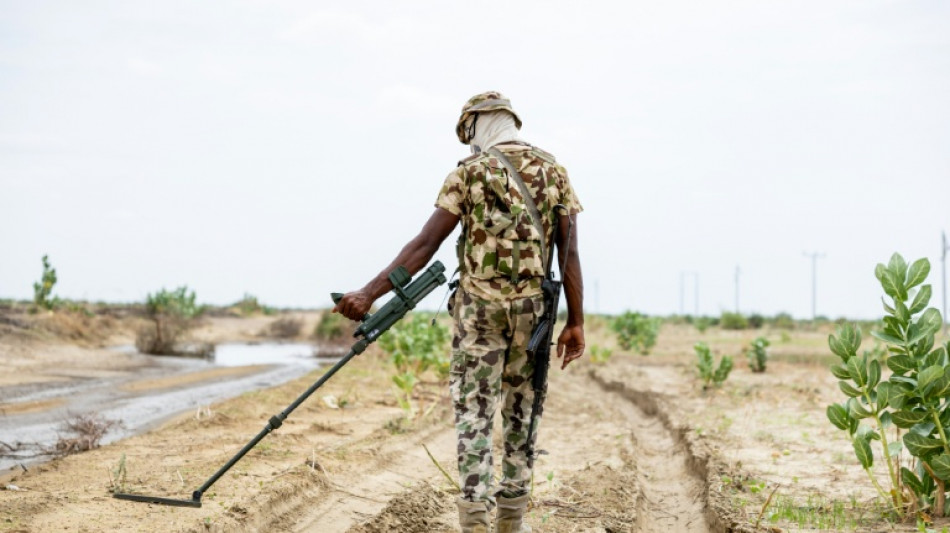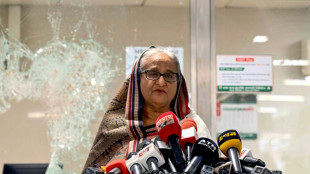

US aid flows to Nigeria anti-landmine efforts - for now
When the United States suddenly moved to dismantle its foreign aid system earlier this year, the UN's landmine safety and removal project in Nigeria braced for impact.
Improvised explosive devices (IEDs) and unexploded ordnance killed or injured 418 civilians in northeast Nigeria in 2024, more than double the year prior -- but workers knew the severity of the crisis was no guarantee that the programme would survive.
US President Donald Trump's cuts came for everything, from malaria treatment to emergency food for starving people.
But then, nothing happened.
"We were very surprised," said Edwin Faigmane, programme chief for the UN Mine Action Service in Nigeria, noting USAID accounted for 20 percent of its funding.
The dismantling of USAID, Washington's main foreign aid arm, has been catastrophic for people across the world. It has also been confusing.
Faigmane said he "couldn't really get an answer" for why UNMAS survived cuts in Nigeria, where a violent jihadist insurgency has been raging since Boko Haram's 2009 uprising.
Earlier this year, AFP reported that malaria clinics in Borno state, the epicentre of the violence, had shut down after USAID funding stopped.
UNMAS's mission in Mali ended when USAID -- its sole sponsor -- cut its funding. Washington also clawed back funding for UNMAS in Sudan.
Earlier this year, UNMAS pre-emptively stopped its USAID-funded operations, until Faigmane got confirmation from USAID officials in Abuja, the capital, that they could continue as normal.
"We were able to deploy some other teams in the areas that we were supposed to cover with the USAID funding" during the pre-emptive suspension, Faigmane told AFP. "We were able to survive because of our other donors."
US funds help UNMAS provide education for rural farmers and displaced persons on how to detect mines, IEDs and unexploded ordnance from the conflict -- and how to report them for removal.
With funds from other donors, UNMAS also trains security personnel on disposal -- a crucial job as Nigeria builds up a fledgling National Mine Action Centre established in 2024.
The US State Department did not respond to a request for comment.
- Civilians on the frontlines -
At the El-Miskin displacement camp in Maiduguri, the Borno state capital, workers from the local nonprofit The Big Smile Foundation gather groups for education sessions.
This camp's activities are funded by other donors, but the Americans' presence is still felt: USAID logos adorn education materials, including a chutes-and-ladders style game for children.
"We've learned how to stay safe... how to mark (suspected) ordnance from a distance, and report it to the community leader," said Hauwa Inusa, a 60-year-old camp resident who fled her home a decade ago.
She might be forced to use her training soon: the Borno state government has marked the camp for closure.
With violence down from its peak a decade ago, the government in recent years has been shutting down camps and sending people back to the countryside.
But swathes of the rural northeast remain outside of government control.
The long-abandoned town of Darul Jamal, near the Cameroonian border, was recently repopulated with its former residents only for jihadists to massacre scores of them in a September raid.
But if the United States eventually pulls out, "our reach collapses."
J.Gustafsson--RTC


